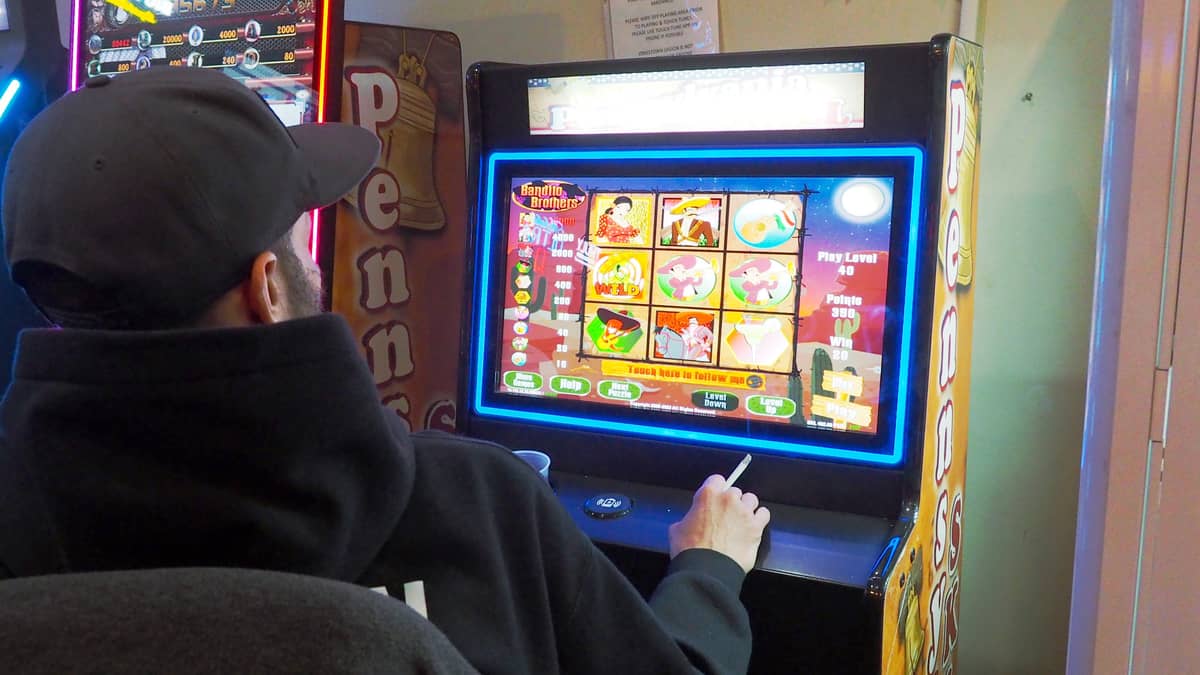This article is shared with LebTown by content partner Spotlight PA. This article is made possible through Votebeat, a nonpartisan reporting project covering local election integrity and voting access. This article is available for reprint under the terms of Votebeat’s republishing policy.
By Marie Albiges for Spotlight PA
HARRISBURG — Before any threat of a deadly, fast-spreading coronavirus disrupted daily life in every way across Pennsylvania, state lawmakers had approved a new way of voting that gave residents an alternative to going in person to the polls.
Little did they know that their legislation would be put to the test during a worldwide pandemic and that, a year after its passage, parts of it would be challenged in the courts and by the same lawmakers who touted it as a bipartisan success.
Experts, advocates, and lawmakers interviewed by Spotlight PA and Votebeat largely agree Act 77 — which allowed any voter to cast a ballot by mail — was successful in its first year, especially given the extenuating and unpredicted circumstances.
Consider the scenario in which it was used for the first time in a general election: during a public health crisis, with record voter turnout, and in a battleground state facing the ire of a president determined to undermine the voting process and spread misinformation.
“This was very much the perfect storm of the implementation of the new voting law in Pennsylvania,” said Suzanne Almeida, the former interim executive director and current counsel at the good-government group Common Cause Pennsylvania. “It was not perfect, but votes happened and they got counted and we have an outcome.”
The extenuating circumstances did, however, magnify gaps in a law that was supposed to make voting easier. Those holes regarding “cured” ballots and signature matching then had to be filled through guidance from the Department of State, which prompted court challenges and opened the door for some Republicans — from President Donald Trump to state and local lawmakers — to launch unsubstantiated claims that the executive and judicial branches were attempting to swing the election in favor of Democrat Joe Biden.
“Any of these areas where the secretary has had to make a call that has then been questioned by the legislature are, in my mind, faults of not having clear statutory guidance,” said Daniel Mallinson, an assistant professor of public policy and administration at Penn State Harrisburg.
But House Speaker Bryan Cutler (R., Lancaster) said gaps in Act 77 weren’t to blame for the “chaos and confusion” his party frequently cites. Rather, he said, they were the result of Secretary of the Commonwealth Kathy Boockvar’s unwarranted guidance and a state Supreme Court controlled by Democrats who legislated from the bench.
“They literally substituted their judgment in place of ours,” he said. “That speaks to a fundamental problem of activism and a failure to read the plain English language.”

Unintended problems, unusual year
When first written and approved, any law can have unintended, unexpected problems, Mallinson said. Introducing a new way to vote would have led to hiccups in any year, and the fact that 38% of votes cast in the general election were by mail speaks to the success of Act 77 during a challenging time, he said.
But there are warranted criticisms of the law that need to be revisited in light of the numerous court challenges that arose before and after the election, Mallinson said. He and other experts pointed to several areas of the Election Code that were problematic and needed clarification from the courts or Boockvar.
In response to questions from election officials regarding technical errors on voters’ mail ballots that would lead to disqualification — like a missing signature or secrecy envelope — Boockvar’s deputy elections secretary on Nov. 2 told counties how they could notify voters of the issues and allow them to cast another ballot provisionally.
Republicans said that guidance was “wholly inappropriate” and called for Boockvar to resign, arguing that because not all counties followed the same process, votes that were “cured” should be thrown out.
But in reality, the Election Code is silent on curing ballots — only saying that ballots with missing signatures or secrecy envelopes should be voided. In multiple courts, judges either dismissed lawsuits that raised an issue with the process, or ruled county election boards could still count provisional ballots cast by voters who were alerted to mistakes.
Sen. Lisa Boscola (D., Northampton), Act 77′s sponsor, said Boockvar wasn’t to blame for the legislature’s failure to address some of the questions raised before the election.
“I was actually proud of some of the things she was trying to accomplish,” Boscola said. “Her goal was to get more people to register to vote, and then get them to vote. She felt like I do — that it was more important to have strong participation and get that mail-in voter law stronger and clearer.”
“To some extent, it’s our fault,” Boscola added. “[It was a] failure of the legislature to clarify Act 77 and those questions that were being asked.”
But in at least two cases, the state’s highest court put aside what’s clearly stated in the law, ruling that the intent of the General Assembly was not to disenfranchise voters, and that the law should be “construed liberally” in favor of the right to vote.
Citing an anticipated surge in voter turnout and potential U.S. Postal Service delays, the state Supreme Court ruled mail ballots could be counted as long as they were received by the Friday after Election Day, despite the fact that the law states ballots must arrive by 8 p.m. on the day of the election. (About 10,000 arrived in that extended window, according to Boockvar.)
In another case, the high court ruled that although the law says voters “shall fill out, date, and sign” the outer envelope of a mail ballot, not doing so is a technical defect and those ballots shouldn’t be disqualified. Republicans had sought to throw out several thousand votes because of technical issues with the outer envelope in Philadelphia and Allegheny County.
While the state Supreme Court considered those issues a “minor irregularity” that didn’t disqualify a ballot, the justices took a perhaps counterintuitive approach to another part of the Election Code that they considered a “weighty interest.” They sided with Republicans on “naked” ballots, ruling the law was clear that a ballot must be placed in a secrecy envelope, which then has to be placed in an outer envelope.
The court said it was clear lawmakers meant the secrecy envelopes to be “mandatory” because they protected the privacy of a voter’s choice.
It’s unclear how many naked ballots were thrown out across the state, but in Philadelphia, about 4,000 ballots lacked a secrecy envelope and were rejected.
“You’re talking about thousands of ballots that aren’t going to count. It’s a problem that we need to correct,” said State Rep. Kevin Boyle (D., Philadelphia), the minority chair of the House committee that handles election legislation. “The wording of Act 77 was extremely problematic in relation to that.”
Republicans including Cutler said Act 77 didn’t need any supplementary guidance or court opinions — “all they had to do was read the law,” he said.
Rather than simply interpret the law, the court unconstitutionally changed it, Cutler said, taking power away from the legislature. That, combined with “conflicting” guidance from Boockvar, caused “chaos and confusion” in the election that now warrants an investigation, Cutler and other Republicans have said.
Cutler said the legislature could respond to the court overstepping its authority with “other constitutional powers” such as controlling how much funding the court gets or, for the most “egregious” acts, impeachment of justices. A spokesperson for Cutler said the speaker wasn’t endorsing these ideas, but pointing out they had been suggested by lawmakers previously.
Boockvar’s office said in an email its guidance was uniform and necessary to update counties as courts resolved disputes regarding the new law.
“It is absurd to assert that Secretary Boockvar or the Department of State did anything to cause confusion or chaos, after she and election officials at every level, Democrat and Republican, worked tirelessly for more than a year to implement the profound changes to voting in Pennsylvania,” spokesperson Ellen Lyon said.

Looking to 2021
Democratic lawmakers and pro-voter groups like Common Cause, the National Vote at Home Institute, and Committee of Seventy said they are looking to the 2021 legislative session, when they hope lawmakers will make some clarifying changes to the Election Code.
“So many of the things that have come up in litigation could’ve been avoided with clarity in the law or, frankly, if the legislature would have listened to organizations like mine,” said Amber McReynolds, the CEO of the National Vote at Home Institute.
Allowing counties to begin processing mail ballots before Election Day was and still is at the top of their wish list. The absence of robust “pre-canvassing,” as it’s known, is why it took counties several days to count all mail ballots, giving Trump and his allies ample opportunity to falsely claim victory then declare the election was stolen as he saw his lead from in-person votes slip away.
House Republicans did allow for pre-canvassing in a bill (HB 2626) passed in June that was doomed from the start. Gov. Tom Wolf said he would veto it if it ever got to his desk because he opposed Republicans tying the change to a ban on satellite drop boxes and giving paid, partisan poll watchers access to polling places across the state.
Pre-canvassing remains a priority for Boockvar, Lyon said, adding that Pennsylvania’s election results would have been completed earlier if the General Assembly had passed such a bill.
“It is disingenuous for Republican legislators to fail to act, cause a delay, and then try to blame others for their failures,” she said.
Pat Christmas, the policy director of the good-government group Committee of Seventy, said lawmakers should also add a curing process for mail ballots with technical errors. And to avoid future lawsuits and confusion, the legislature should clarify the process for what, if any, signature matching between a voter’s ballot and their record should take place.
Boscola and Christmas said lawmakers need to put some distance between the “noise” surrounding the election and any future election-related legislation they consider.
“In the lead-up to this election, and in the aftermath, it’s extremely difficult to have a grounded, deliberative, constructive discussion about what needs to change,” Christmas said. “Every last little adjustment is going to be viewed very, very strictly through a partisan lens.”
Cutler said that election-related issues will be at the “forefront” of the legislative agenda and that the House State Government Committee has requested data and posed questions to Boockvar and county election officials that will help inform any proposed legislation.
Some advocates, like McReynolds and Common Cause’s Almeida, worry Republicans will try to roll back the voting changes put in place last year in light of unsubstantiated allegations about widespread voter fraud. On Tuesday, Rep. Jim Gregory (R., Blair) said he would introduce a bill to “undo” provisions of Act 77, including universal voting by mail.
A spokesperson for Cutler said the speaker typically doesn’t weigh in on whether he supports a bill, and Gregory’s proposal would go through the legislative process.
But Boscola said she wasn’t worried about Republicans rolling back the expansion of voting opportunities.
“I don’t see voting and this voting act as a Democrat/Republican polar divide,” Boscola said. “I think most of us — at least the ones in the center — believe that we need to make some changes.”
100% ESSENTIAL: Spotlight PA relies on funding from foundations and readers like you who are committed to accountability journalism that gets results. Give now and your contribution will be DOUBLED: spotlightpa.org/donate























